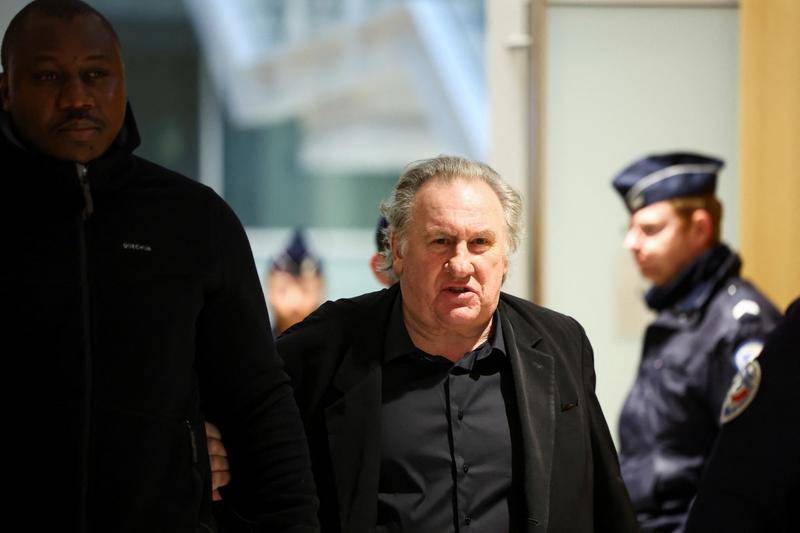French Star Gérard Depardieu Returns to Screen as Legal Case Looms
Acclaimed French actor Gérard Depardieu, long regarded as one of France’s most recognizable cinema figures, is poised to return to the big screen in a new film directed by a longtime friend — even as he awaits a court verdict in a highly publicized sexual assault case.
Depardieu, 76, is set to star in a project by director Fabien Onteniente, marking his first major role since facing multiple accusations of sexual misconduct over the past few years. Onteniente, best known for the comedy Camping and other box-office hits, has confirmed that Depardieu will play the lead role in his upcoming film titled Mister President, a political satire centered on an aging head of state confronting personal and political crises.
The announcement has stirred controversy across France and beyond, as public opinion remains sharply divided over whether Depardieu, who has consistently denied the allegations, should continue working in the entertainment industry while his legal troubles remain unresolved.
Depardieu is currently awaiting a verdict in a sexual assault case stemming from allegations made by actress Charlotte Arnould, who accused him of raping and sexually assaulting her in 2018 at his Paris home. Arnould, then in her early twenties, filed the complaint in 2018, and Depardieu was formally charged in December 2020.
The actor has repeatedly declared his innocence, calling the accusations “unfounded†and “the product of a toxic atmosphere.†His legal team has expressed confidence in a favorable outcome, arguing that the case relies heavily on contradictory testimony and lacks physical evidence.
While Depardieu has yet to stand trial on several other claims made by women who came forward publicly in 2023, the current case represents the most advanced legal threat to his storied career. A verdict is expected later this year.
The decision by Onteniente to cast Depardieu has sparked heated debate in the French film industry. Some actors, producers, and activists have criticized what they call an industry pattern of protecting powerful men accused of abuse, while others defend the principle of presumption of innocence and the separation between personal conduct and artistic contribution.
Actress and #MeToo advocate Adèle Haenel, who famously left the César Awards in 2020 in protest over Roman Polanski’s win, condemned the decision as “a slap in the face†to survivors of sexual violence. “We can no longer pretend that the art world exists outside of society,†Haenel said in an interview this week. “Continuing to celebrate men like Depardieu sends a dangerous message.â€
Conversely, veteran actor Pierre Richard, a longtime friend of Depardieu, defended his colleague’s right to work. “Gérard has given everything to French cinema,†Richard told Le Parisien. “Let justice do its work — but in the meantime, let him continue to do what he knows best.â€
Depardieu’s career has been marked by both extraordinary artistic achievements and off-screen controversies. He rose to fame in the 1970s with films like Les Valseuses and 1900 and achieved international stardom with Green Card and Cyrano de Bergerac, for which he received an Oscar nomination.
Over the decades, he has won numerous César Awards, worked with some of the world’s greatest directors, and become an enduring symbol of French culture. Yet his public image has also been tarnished by erratic behavior, political provocations — including accepting Russian citizenship from Vladimir Putin — and a string of legal issues, including drunken driving charges and physical altercations.
For many, Depardieu’s current legal troubles represent the culmination of years of troubling behavior that was long overlooked or excused. Critics argue that the French film industry, like many others, has historically been slow to reckon with issues of sexual misconduct.
For director Fabien Onteniente, casting Depardieu is both a professional and personal choice. The two have worked together in the past, and Onteniente has described Depardieu as a “genius of cinema†and “a brother in art.â€
In an interview with France Inter, Onteniente defended his decision. “I’m not a judge or a lawyer,†he said. “I’m a filmmaker. I choose my actors based on their talent and their ability to serve the story I want to tell. Gérard is perfect for this role, and I believe in his humanity.â€
Onteniente also stressed that the film’s financing has not been jeopardized by the controversy, though several reports suggest that some distributors are cautious about committing to the project until Depardieu’s legal fate is clearer.
Mr. President is slated to begin shooting later this year, with a tentative release planned for 2026. It remains to be seen how audiences, both in France and internationally, will respond to Depardieu’s return to the screen.
Film critic Caroline Vié of 20 Minutes predicts a mixed reaction. “There is no doubt that some longtime fans will flock to see him, while others will stay away in protest,†Vié said. “The bigger question is whether the film can stand on its own merit or whether it will be overshadowed by the actor’s off-screen troubles.â€
In a year when the global entertainment industry continues grappling with issues of accountability, consent, and redemption, Depardieu’s case offers a stark reminder of the tensions between art and morality, talent and power. Whether his comeback succeeds or collapses under public scrutiny will likely depend as much on the courtroom as on the cinema.


